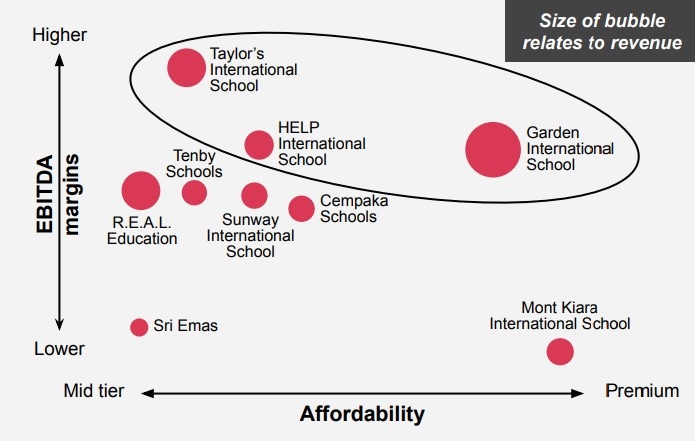{{item.title}}
{{item.text}}

{{item.text}}
June 2020
By Yennie Tan, Partner and Deals Strategy Leader, PwC Malaysia
There has been a paradigm shift in the delivery of K-12 education (comprising preschool, primary and secondary school education), as Educational Technology (“EdTech”) continues to drive growth and develop a future-proof workforce across South East Asia. This includes the emerging demand for more holistic and innovative learning to prepare the next generation of leaders with new skills for the new economy.
In Malaysia, as well as regionally, we observe key shifts in the following areas:
Interactive education models through platforms, emerging technologies, data analytics, augmented reality, etc.
Innovating pedagogy by creating classroom environments that foster collaboration, application and student-led learning
Holistic learning combining leadership training, teaching of life skills, and workforce preparation
Several institutions in Malaysia have been able to demonstrate that they are able to meet the demands of new market trends listed above.
Leading K-12 schools in Malaysia are shown to possess strong brand heritage and notable academic standing in the market. Ultimately, these schools have been able to successfully manage and optimise their operations, while effectively catering to their customers’ key purchasing criteria, i.e. price sensitive parents who highly value academic quality, a future-proof curriculum and holistic learning.
Notes:
1) EBITDA margins extracted from FYE18 financial statements
2) Dividends received from subsidiaries have been deducted from revenue (Sunway International School)
Highlighted successful schools have achieved EBITDA margins averaging between c.30-40% (2018)
These high-performing schools have been able to capture the mid- to high-income segment and maximise student enrolment, while optimising operating cost
They are typically recognised as technology-enabled schools with global recognition through numerous international awards
The private K-12 education sector is becoming increasingly competitive in Malaysia, with saturation in major cities including Penang, Kuala Lumpur and Johor Bahru. Schools could take steps to differentiate themselves through value-added innovations and align their educational offerings to the skills and capabilities demanded by the future workforce.
One way that schools have quickly developed the digital resources they need is through strategic partnership with players such as corporates, universities and even incubator programmes. For example, the upcoming Sri KDU Klang will be positioned as the first Microsoft Flagship School in the region. Through this partnership, the school will benefit by receiving support and resources from Microsoft and its partners to optimise education curriculum and delivery.
With the discrepancy between the skills people have and those needed for jobs in the digital world continuing to widen, schools have a key role to play. A curriculum that incorporates not just the digital skills that students will need for the future, but also ‘softer’ skills that is harder to replace such as communication, critical thinking, and whole leadership, will help schools stand out amongst the competition.
Amidst increasing competition in a challenging economic climate, the market is poised for consolidation. This allows for operators to cross-leverage their brand, reputation and expertise to remain competitive.
Players looking to consolidate should not overlook the untapped demand for good quality and affordable private education particularly among the growing middle- to upper-income segment. In order to thrive and capture future growth opportunities, education providers should focus on:
For more insights, read our thought leadership publication: “Transforming Education Through Digital Innovation”
{{item.text}}

{{item.text}}
{{item.text}}

{{item.text}}
{{item.text}}

{{item.text}}


